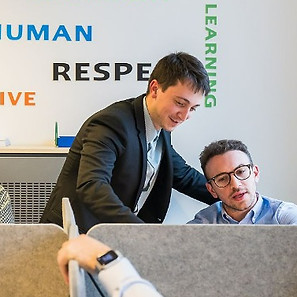
Optimising cashflows amidst inflation and monetary fluctuations
Background
A BIOTECH HAD SIGNED A CONTRACT IN DOLLARS SHORTLY BEFORE THE EURO LOST VALUE AGAINST THE DOLLAR.
PAYMENTS ENDED UP BEING OVER 25% MORE EXPENSIVE THAN EXPECTED.
In the context of a clinical study, a biotech specialized in cellular therapies had signed a contract in dollars with an American subcontractor, payable in installments. However, starting from the end of 2021, the euro lost value against the dollar.
As time passed, the more the company lost money on this contract and nothing had been planned to offset the unfavorable exchange rate. In the end, it paid for these services more than 25% more expensive than initially expected.
Moreover, in 2020, this biotech had raised funds from several investors. Two years later, the second installment was released, causing a surplus of cash. As interest rates have been nearly always close to zero since the company was founded, no one cares about it. Especially since the historic management controller has resigned and it will take a few months before she can be replaced.
To ensure the interim, a finance consultant, Julien Revel, is commissioned by Altesia.
Approach
The first tasks of the Altesia expert are to control expenses, establish forecasts, and assist the CFO in drafting the next budget. But she also asks him for advice on how to protect against the uncertainties of exchange rates.
Since there is cash in the treasury, Julien suggests setting aside a certain amount in dollars, which allows for benefiting from better interest rates than in euros or for paying directly in dollars in case the euro falls even further.
This case leads him to study more the possibilities offered by cash investments. Because if returns are indeed better in dollars than in euros, the rise in interest rates caused by global imbalances post-COVID 19 also makes investments in euros more attractive than in the past. Discussions with the banks are initiated. "Every week, the bankers came in with higher rates," recalls Julien Revel.
"The difficulty of the exercise lay in calculating which amounts and for what durations the available money could be blocked because clinical studies require releasing cash as the research progresses. I then developed different scenarios always taking a a margin of reserve cash."
Julien Revel, Finance Consultant at Altesia
Results

Julien Revel has created a model and a tool to follow the different offers and scenarios: which banks, what rates, what remains in the cash register, what will be needed and when, etc. Several million were placed in euros for three months in three different banks. "It would have been foolish to leave all this money at a zero rate," the expert says. The work of the Altesia expert here has allowed for a profitability between 3.5 and 4.5% on the surplus cash.
Longer-term rates, even more attractive, were also identified, allowing the CFO and the new management controller, who was hired eight months after Julien Revel's arrival, to see more clearly for possible placements when new tranches of fundraising have been paid.
In terms of contracts in foreign currencies, the company also retains, following the expert's work, the option to lock in a sum in the concerned currency, in order to reduce its exposure to risks of exchange rate fluctuations and thus reduce risks on its treasury.



